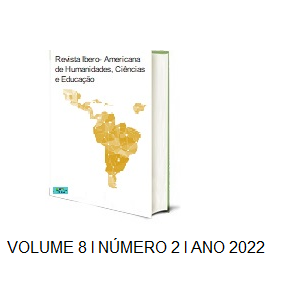AN ENVIRONMENTAL ISSUE
DOI:
https://doi.org/10.51891/rease.v8i2.4321Keywords:
Environmental law. Logging. Environment.Abstract
The United Nations Conference on Development and the Human Environment tried to raise awareness about the responsibility of each nation regarding the degradation of the environment, in addition to the damage caused by segregation, discrimination and colonial oppression, among others. Evolution has brought Environmental Law, which deals with diffuse matters, therefore, it is important and substantial for a good relationship between the environment and sustainable development, as it is what gives meaning to the sustainability tripod, represented by the economic, social and environmental. The protection of the Environment aimed at by environmental law encounters barriers in all fields, but especially when it debates with the economic sectors, which are responsible for the confusion and distortion of values, which expand and spread through the minds and actions of all, however, most notably among the needy population, who, although serving as a mass of maneuver, are blamed for the failure. Between the years 2020 and 2021, Brazilian justice lived with complaints against the Minister of the Environment, a man trusted by the Bolsonaro government, who was accused of facilitating deforestation in the country. Between the years 2020 and 2021, Brazilian justice lived with complaints against the Minister of the Environment, a man trusted by the Bolsonaro government, who was accused of facilitating deforestation in the country.
Downloads
Downloads
Published
How to Cite
Issue
Section
Categories
License
Atribuição CC BY

